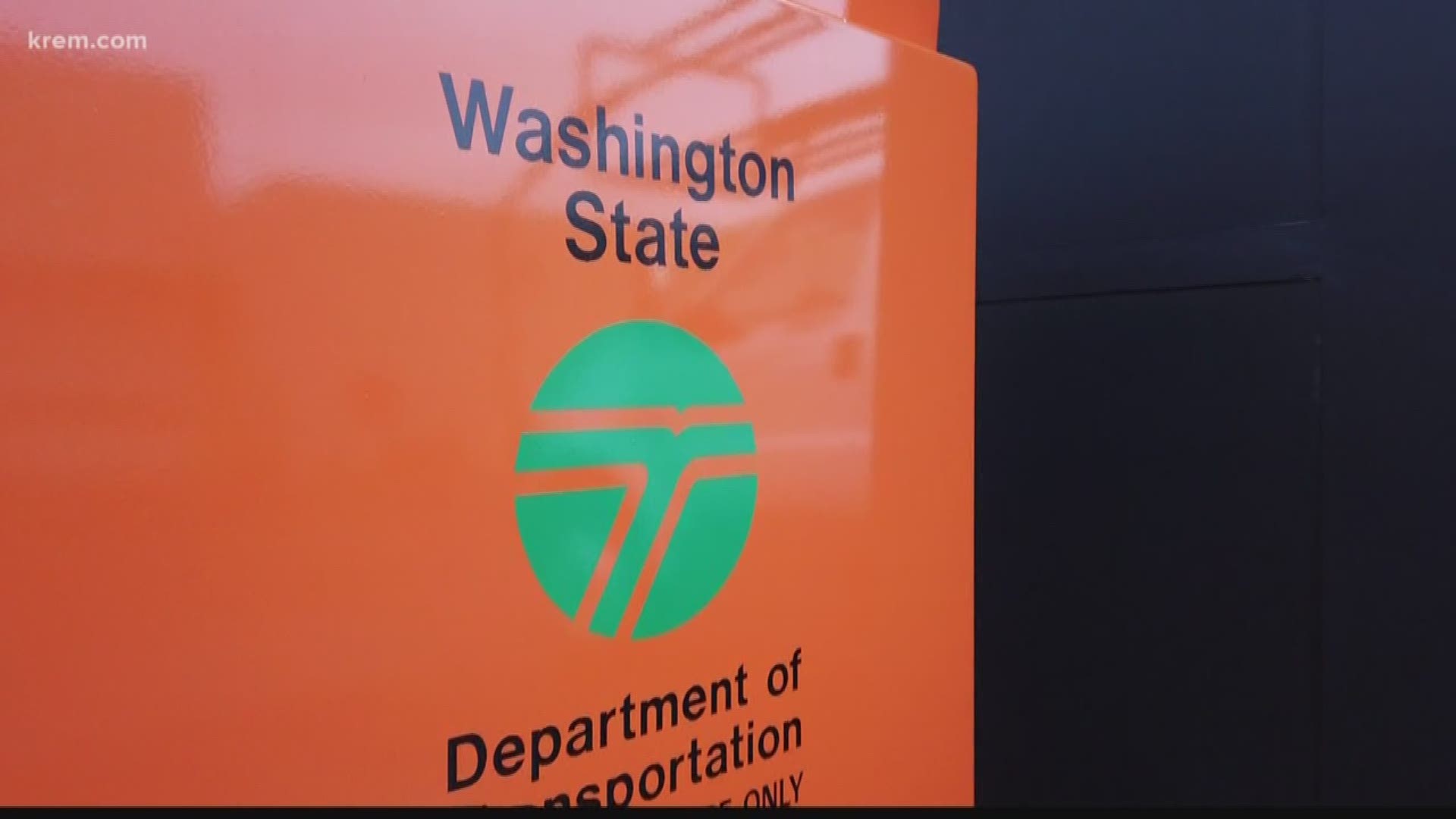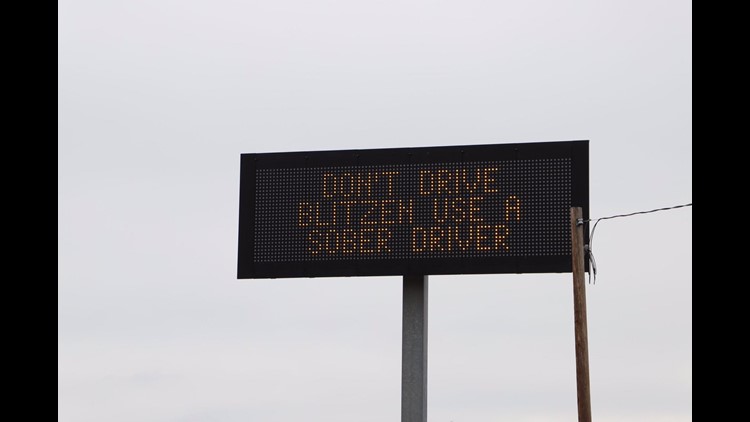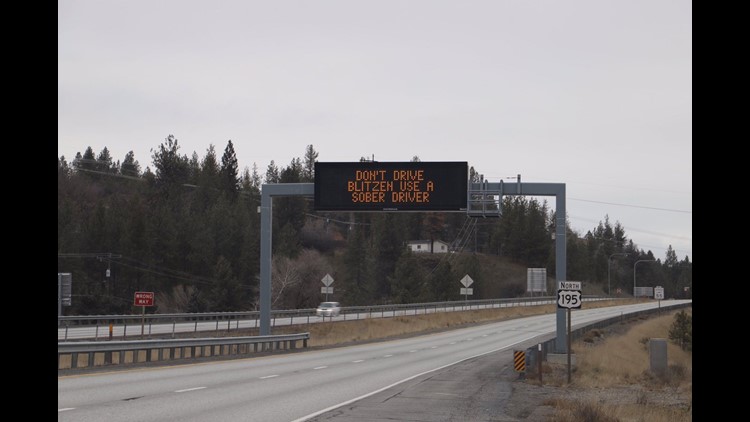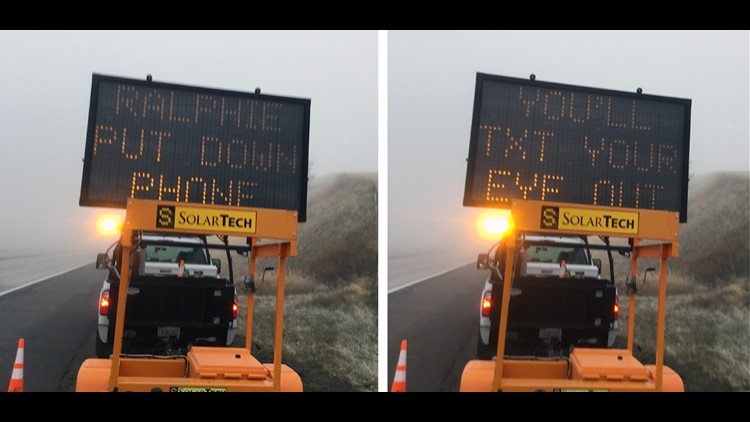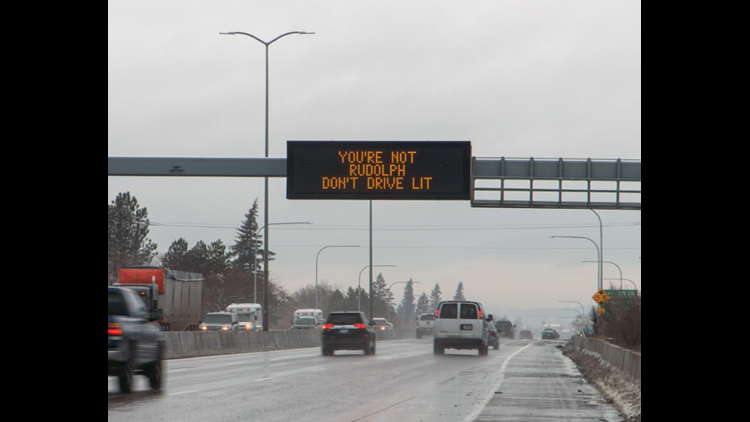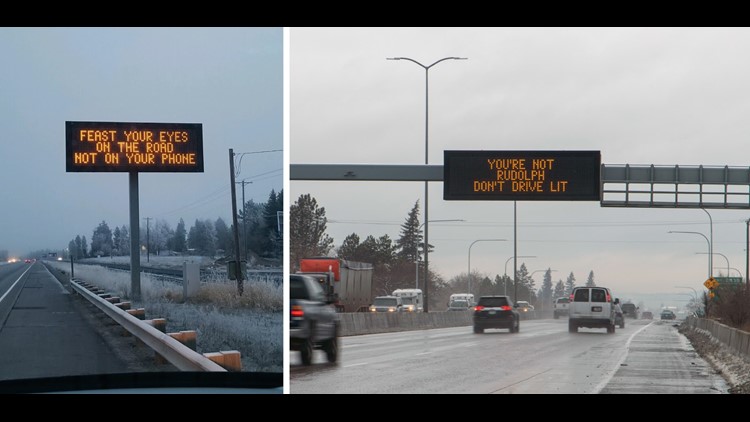SPOKANE, Wash. — If you're driving through Spokane, a series of festive yet important messages may have caught your attention on the road.
'You're not Rudolph don't drive lit,' is one of the many unique road safety messages promoted by the Washington State Department of Transportation.
Communications Specialist for the Washington State Department of Transportation Ryan Overton says they are trying a pilot program to do more safety messages to get drivers attention and remind them of safe driving habits.
The new messages can be seen on reader boards that sit over Interstate 90, US 2, US 395 and US 195.
Overton says that several serious and fatal collisions have occurred on the routes where the reader boards are located. About 17 percent were related to distracted driving, 7 percent being right-of-way or unsafe passing, another 7 percent were sleeping behind the wheel.
Previous messages read, "Don't text and drive" or "Tired? Take a break".
Overton says that by using more creative and relatable messaging, they are able to reach a larger audience and cut through the white noise of typical messaging in order to engage people.
“It's no more than a speed limit sign or other warning signs along the highway and it gets people talking like you mentioned," Overton said.
In years past, the message boards have been reserved for AMBER Alerts, blocking collisions and the occasional emphasis patrol.
Now that it’s the holiday season, there’s an emphasis on DUI patrols so Overton says it was important to be creative while coinciding with the patrols.
Some of these messages urging drivers to not drink and drive include, "Don't drive Blitzen, use a sober driver."
Photos: Festive WSDOT road signs promote safety
A driver message is common in other states, but these signs first started several years ago as a campaign to keep Washington State University students safe on their journeys to and from school.
Now it’s expanded here to Spokane.
“That’s a handful of people that maybe didn’t have the message beforehand,” said Overton. “For now, it’s local but we’re hoping to take this further to other regions around the state.”

